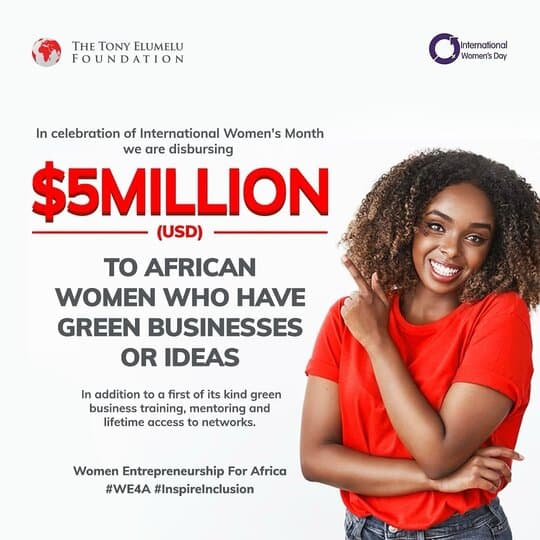9 Legit Ways to Get Capital for Your Small Business in Nigeria
July 17 2025
7 Mins READ

Damilola
720
Starting or scaling a small business in Nigeria remains challenging, especially when access to capital is restricted. Only 12.2% of MSMEs receive loans from traditional banks, while 70% rely on friends and family, and just 15% use loan apps (BusinessDay). If you don’t have collateral or a formal credit history, viable alternatives exist.
Here are 10 proven ways to obtain capital in Nigeria in 2025:
-min.png&w=1200&q=75)
1. Government and Donor Grants
Programs like the Tony Elumelu Foundation, YouWin Connect, Bank of Industry (BOI) Youth Schemes, and Lagos Employment Trust Fund (LSETF) offer non-repayable grants to startups. They require applications with business plans and are ideal for early-stage ventures. You can subscribe to mailing lists to catch open windows early.

2. Family, Friends, and Ajo Contributions
Personal networks remain the most trusted and flexible funding source. About 70% of entrepreneurs sustain their business with family or cooperative funds (Moniepoint Informal Economy Report) , Businessday Financial Times
This is one of the most overlooked but most common sources of capital for Nigerian businesses. Whether it’s ₦50k or ₦500k, support from people who believe in you can give your business a kickstart.
Be transparent. Present your idea seriously and show how you’ll use the money. Even if it’s a gift, treat it professionally to build trust.

3. Fintech and Loan Apps
Digital lenders such as Carbon, FairMoney, Branch, and Aella Credit disburse quick loans without collateral. Fintech in Nigeria grew by 70% in 2024, with expanded credit lines for MSMEs (Fintech News Africa) . Fintech has made loans more accessible in Nigeria, especially for entrepreneurs with regular digital income. Many offer up to ₦5 million with minimal paperwork. Ensure you check interest rates and repayment terms. Start small and repay on time to build credit worthiness.
4. Cooperative Societies (Ajo/Esusu)
Local thrift groups or cooperative societies remain one of the oldest and most trusted capital sources. They allow members to contribute weekly or monthly and collect large lump sums in turn.
This method is interest-free and builds financial discipline, especially for market traders and artisans.

5. Crowdfunding Services
Platforms such as Fundanenterprise, GoFundMe, and NaijaFund enable capital raising via public support. A compelling story and clear use of funds often yield good results for social projects or community-driven startups.
6. Angel Investors and Startup Accelerators
Innovative or scalable businesses can apply to incubators like CcHub, GreenHouse Lab, or LeadPath Nigeria. These provide capital, mentorship, and network access in exchange for equity. If your business is tech-driven or scalable, you can attract angel investors or join a startup accelerator.

7. Turn Idle Assets into Value via Cusecho
If you own gadgets, electronics, or tools you rarely use, you can unlock immediate capital by swapping or selling on Cusecho. Instead of buying new inventory or tools, swap your items to get what you need for your business, without spending cash.
Download the Cusecho app from the Play Store and start converting idle assets into business capital today.
8. Credit Guarantee Schemes and Policy Funds
The federal government’s National Credit Guarantee Company, launched in 2025, aims to improve credit access for youth and women . Businessday NG. Other interventions like the Consumer Credit Corporation (CREDICORP) and MarketMoni via AGSMEIS offer single-digit rate loans or credit guarantees . Wikipedia.
9. Freelancing and Gig Income
Offer skills like writing, design, coding, or tutoring on platforms like Fiverr, Upwork, or Asuqu. Set aside your earnings to fund your business. This method requires zero startup cost and builds discipline.
Why Alternative Capital Sources Matter
- Nigeria’s MSME finance gap stands at USD 32.2 billion (about N13 trillion), per IFC Businessday NG.
- Over 80% of Nigerian businesses operate informally, employing youth and women (BusinessDay/Moniepoint) Businessday NG.
- Banks lend to only 12% of small enterprises; interest rates frequently exceed 20–25% per annum , Financial Times.
In Conclusion
Formal finance is scarce and costly in Nigeria. That is why tapping into grants, community funds, digital lenders, and creative tools like Cusecho is critical.
Swapping items via Cusecho offers a unique alternative, unlocking business capital from idle assets.
Download the Cusecho app today and start converting what you already own into what you need to grow your business.
Also Explore
See more related